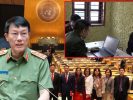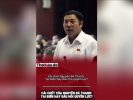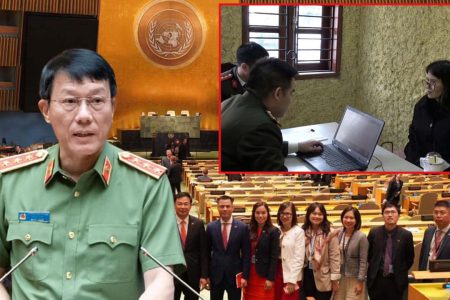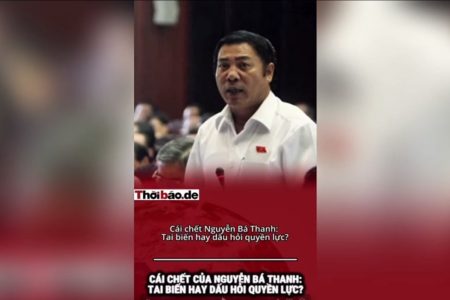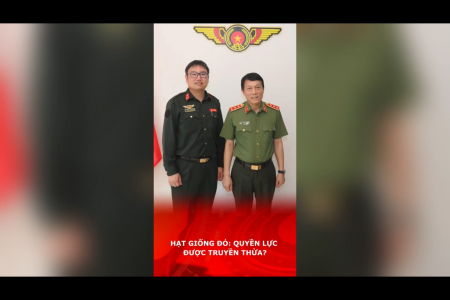
Activists say Vietnam needs to change its perception of human rights to improve the country’s human rights record and contribute more to the international community as a member of the United Nations Human Rights Council in the 2023-2025 term.
Despite its poor human rights record, Vietnam was still elected to the UN Human Rights Council in the next two years by 145 out of 189 countries in the United Nations General Assembly on October 11.
Vietnam’s human rights perception is different from the world
Some human rights and democracy activists in the country said that the current perception of human rights in the Vietnamese State is far different from that of developed democracies.
In a message to Radio Free Asia (RFA), a human rights activist in Hanoi said on condition of anonymity:
“The important thing to do is to change the thinking and views of the Vietnamese authorities on human rights issues.
They must see human rights as the key to resolving conflicts in society, tolerating each other, eliminating hatred, and developing the country.”
Vietnam’s Ambassador to the UN, Mr. Dang Hoang Giang, when talking about difficulties in the election process, said that there are many differences in the approach to human rights issues between countries and finding a common understanding which Vietnam can contribute is a difficult problem.
In an interview with the Báo Quốc Tế of Vietnam’s Ministry of Foreign Affairs, Minister Bui Thanh Son affirmed that Vietnam „will work with member countries to promote initiatives and solutions in areas such as the right to live in peace, development rights, rights of vulnerable groups, gender equality, access to health, education, employment, response to climate change, epidemics, et.”
However, according to some international human rights organizations, “the right to development” and the “right to peace” promoted by the Hanoi government are ambiguous and are placed above universal human rights.
Trieu Anh (changed his name for safety reasons), another activist in Hanoi, affirmed that Vietnam needs to respect its law and enforce it aggressively, in addition to taking many measures to improve the country’s human rights record. He wrote in a text message to RFA:
“For improvement, it is necessary to create a legal framework, or in other words simply respect the Vietnamese Constitution so that people can exercise their rights to freedom of speech in accordance with the current Constitutional framework.”
At the end of March this year, Vietnam’s Ministry of Foreign Affairs released the Midterm Report on Voluntary Implementation of the Recommendations approved by the Government of Hanoi under the Universal Periodic Review of Human Rights (UPR) cycle III.
The Vietnamese government refused to implement 50 recommendations out of a total of nearly 300 that countries made during the UPR hearing before the United Nations in 2021.
Notably, there was a recommendation from the representative of the Czech government, asking to create conditions for pluralism, and multi-party democracy and ensure democratic elections, but it was rejected and explained that it was „not suitable for the political policies, laws and practical conditions“ in Vietnam.
There should be free elections, an end to the „silence“ of dissent
When asked what the government must do to fulfill its responsibility to set an example when becoming a member of the UN Human Rights Council, Dr. Nguyen Phu Hai – retired army colonel told RFA that the Communist Party should free prisoners of conscience, amend or remove vague provisions in the Criminal Code used to suppress dissent.
According to Hai, the government needs to market and absorb the people’s criticisms and must conduct really free elections at all levels, allowing the people to directly monitor the votes, not just be controlled by the National Fatherland Front.
According to Mr. Trieu Anh, in recent years, the government has limited civil space and suppressed human rights, carrying out many arrests that spread to legally registered NGOs and even civilians as well. He said:
“Vietnam needs to immediately stop persecuting those who exercise the right to freedom of expression online and in real life.
To allow civil society to freely form and operate without restriction, and for a private press to be established to operate more professionally.
Activists should not be banned from leaving the country when they want to go abroad to study or attend events.”
At the end of September, lawyer Vo An Don was banned by the security agency from leaving the country at Tan Son Nhat International Airport when he and his family boarded a flight to the United States to seek political asylum.
The Vietnamese government, when responding to reports of international human rights organizations or governments of free countries, often says that this country does not have prisoners of conscience, they only imprison individuals who violate the law.
Thoibao.de (Translated)


















